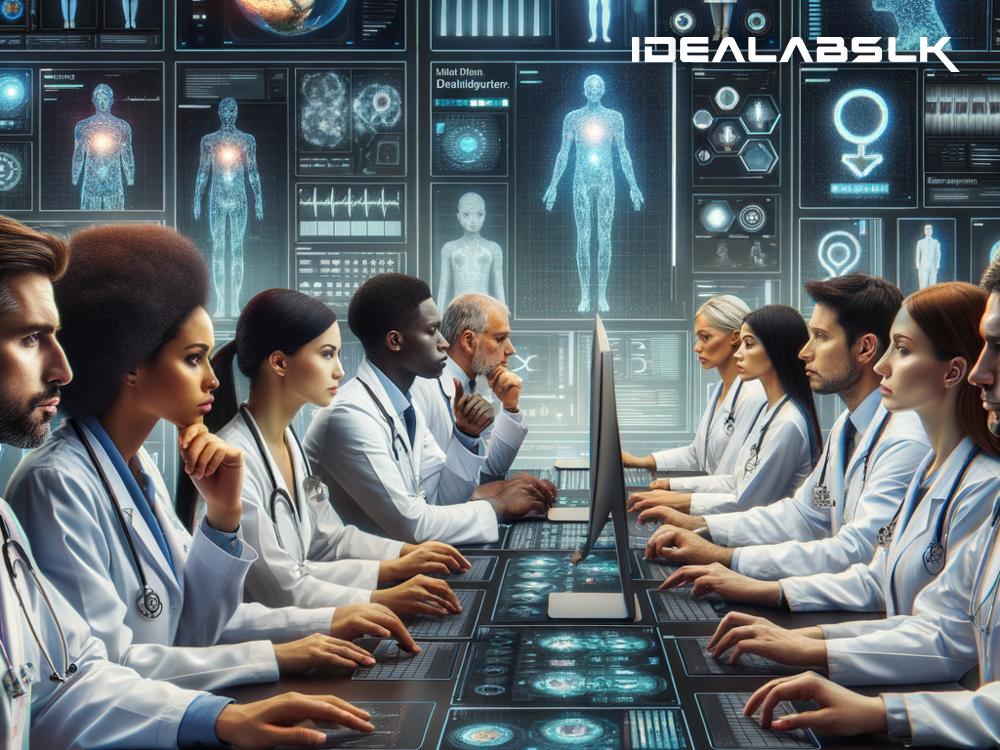Title: How AI-Powered Diagnostics Are Changing Healthcare for the Better
In today’s world, technology is a key player in almost every aspect of life, and healthcare is no exception. One of the most groundbreaking advancements? The rise of Artificial Intelligence (AI) in diagnostics. Think of AI as a super smart computer that can learn, adapt, and even make predictions based on the data it’s given. This intelligence is now revolutionizing healthcare, making diagnostics faster, more accurate, and more accessible than ever before. Let’s dive into how AI-powered diagnostics are changing the game.
Speeding Up Diagnostics
First off, AI speeds up the diagnostic process significantly. In the past, diagnosing a disease could take days or even weeks, as samples had to be sent off to labs and meticulously examined by specialists. Now, with AI, the process can often be cut down to a matter of hours or even minutes. For instance, AI algorithms can quickly analyze X-rays or MRI scans and identify potential issues much faster than a human can, saving precious time in critical situations.
Boosting Accuracy
Accuracy in diagnostics is life-saving. Here’s where AI really shines. Traditional diagnostic methods rely heavily on the expertise and experience of medical professionals. While they do an amazing job, humans can understandably make mistakes or miss subtle signs. AI systems, on the other hand, can analyze vast amounts of data and detect patterns that might not be apparent to the human eye. For example, some AI systems are trained to detect specific cancers with higher accuracy rates than experienced radiologists. This doesn’t mean AI replaces doctors, but it provides them with a powerful tool to make more informed decisions.
Making Healthcare More Accessible
Imagine living in a remote village, miles away from the nearest hospital or clinic. In such a scenario, access to healthcare, especially specialized diagnostics, can be challenging. AI is poised to change this. With AI-powered diagnostic tools, preliminary assessments can be done remotely. Patients can use apps or devices to collect necessary data, which is then analyzed by AI, and the results can guide the local healthcare provider on the next steps. This isn’t just convenient; it’s a lifeline for those in remote areas or with limited access to healthcare.
Personalizing Treatment Plans
Every person is unique, and so is their response to treatment. AI helps in tailoring treatment plans to the individual’s specific needs. By analyzing data from a patient’s medical history, genetic information, and lifestyle, AI can predict which treatments are most likely to be effective for them. This personalized approach not only has the potential to improve outcomes but also to reduce side effects and healthcare costs.
Challenges and Ethical Considerations
While the benefits of AI in healthcare diagnostics are immense, there are challenges and ethical considerations that need addressing. Concerns about data privacy, security, and the potential for bias in AI algorithms are significant. Ensuring that AI systems are transparent, fair, and protect patient confidentiality is crucial as we move forward.
Moreover, while AI can provide recommendations, the ultimate decision-making should remain with healthcare professionals, who can consider the patient’s condition, preferences, and values in their decisions. Balancing the use of AI with the irreplaceable human touch in healthcare is essential.
The Future Is Now
The potential of AI-powered diagnostics in revolutionizing healthcare is immense and we’re just scratching the surface. As technology advances and becomes more integrated into healthcare systems, we can expect diagnoses to become even faster, more accurate, and personalized. This not only improves patient outcomes but also enhances the efficiency of healthcare systems worldwide.
In conclusion, AI is not just a buzzword in the healthcare industry; it’s a transformative force. By speeding up diagnostics, boosting accuracy, making healthcare more accessible, and personalizing treatment plans, AI is setting the stage for a future where healthcare is more efficient, effective, and equitable. As we navigate the challenges and harness the potential of this technology, the possibilities are nothing short of revolutionary. Welcome to the future of healthcare, powered by AI.

